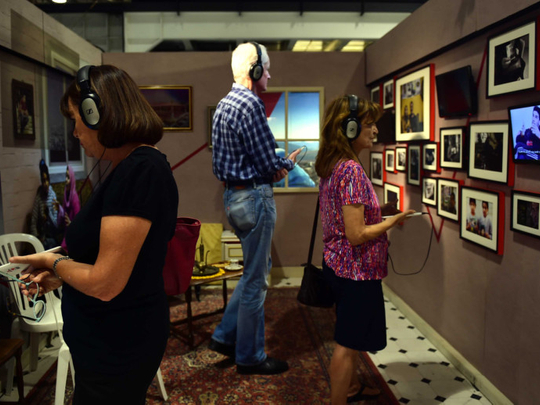
Dubai: Their plight seems to be forgotten and their future seems to be shelved.
Palestinians refugees living inside the West Bank and Gaza Strip, as well as the diaspora disperse beyond its borders, have been lost in a cycle of news and terrorism that focuses international attention elsewhere. Palestine is on the back burner as the international community is consumed with tragedies of other refugees in Syria, Iraq, Yemen and other countries torn apart by wars and strife.
“The world has forgotten what is happening in Palestine,” said Ghassan Abu Sittah, the head of plastic and reconstructive surgery at the American University of Beirut Medical Centre (AUBMC). “The collapse of the security situation in many parts of the Arab region has overshadowed the situation in Palestine,” Abu Sittah added in an interview with Gulf News.
“But the tragedy in Palestine is continuing and there is no hope that things will improve,” Abu Sittah said. “Inevitably, any civil war going on in the Arab world will come to an end — the same way the Lebanese civil war ended — but Palestine is an open wound with no end at sight.”
Abu Sittah was one of three panellists who spoke at a recent discussion session organized along with “in Between War” exhibition created by Medecins Sans Frontieres (MSF) in Dubai.
The exhibition aims to express the refusal to condone, trivialise or accept the situation of Palestinian living conditions under occupation as normal
“The physical and psychological toll that this (Israeli) occupation take on the Palestinian population is real and painful and unacceptable,” MSF says.
The organisation runs several programmes in the Palestinian territories based around its five centres in the Gaza Strip and the West Bank. There are nearly 150 Palestinian employees and approximately 15 expatriate staffers in total, said Matehilde Berthelot, MSF’s operational desk manager. She has long experience in the humanitarian field and has managed MSF medical operations in Pakistan and Afghanistan, Chad, the Central African Republic, Iraq and the Palestinian territories.
The kind of medical aid offered to Palestinians in Gaza Strip differs from that offered to the West Bank, Berthelot explained in an interview with Gulf News. While psychological consultations are the overwhelming medical aid offered in the West Bank, there are surgeries and medical treatment offered to Palestinians living in Gaza, she said.
“The current living conditions are creating more wounded than the war itself,” in Gaza, especially that only a small percentage of homes have been rebuilt since Israel’s attacks on the area over the past seven years, Berthelot said.
Gaza is considered one of the most impoverished and populous areas in the world. Abu Sittah has travelled to Gaza three times through the joint programmes between AUBMC and MSF between the 2008 and 2014 to offer medical treatment to Gazans.
“The situation in Gaza is going from bad to worse, because the blockade has become total,” he said. The only hope for things will improve are efforts to bind the societies together, he added.
Overall, in Gaza, there’s a sense of hopelessness.
“An ordinary 10-year-old boy will have witnessed four wars and will have most family members without a job,” Abu Sittah said. “Many live and die under the Israeli blockade and this is creating now a whole generation.”
The problem is that aid poured into the Gaza Strip during the wars, but once the guns fall silent and the cameras are off, aid stops arriving he said. He specialises in plastic and reconstructive surgery and cleft and craniofacial surgery. He strongly believes the priority should be investment in local health sectors, so people themselves can offer medical treatment more than just services.
Commenting on aid offered to Palestinians in the Gaza strip, and the psychological assistance after the Israel war, Abu Sittah said: “Do you work on the impact of the 2008 war, or the 2012 war, or the 2014 war, or you would prepare them for the next war?”
“The Palestinian question is no longer the central issue,” said Salma Al Yassir the Director General of the Institute for Palestinian Studies in Beirut, Lebanon.











